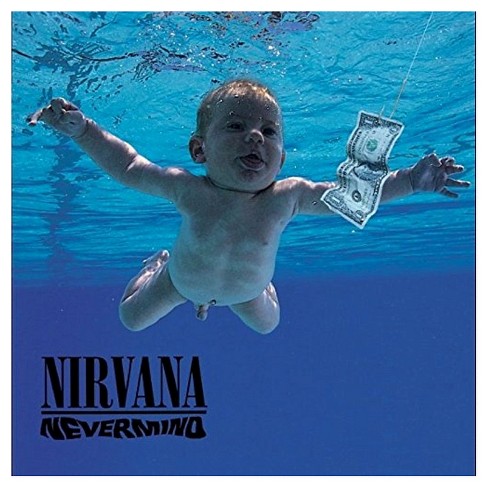If I tell you that “Smells Like Teen Spirit” is 27 this year, does that make you feel ancient yet? That’s right, it’s been 27 years today since “Nevermind” made its entrance in 1991. The music industry has never been the same since.
It’s no exaggeration to say that this second album by Nirvana took the world by storm. To even review an album this significant, it helps to understand the world at the time. Grunge was quickly taking on a life of its own in the underground music scene, and Nirvana had its thumb on the pulse. A divide was growing between pop rock, which was largely seen as music for the baby boomers, and the blooming alternative rock genre that Generation X college students were actually listening to. Then “Nevermind” came on the scene, and by 1992 alternative rock was on fire.
Partly responsible for bringing alternative rock and grunge to mainstream attention, the album was at first largely ignored until mainstream critics realized what a phenomenon it and the band had become. Kurt Cobain was launched into unwanted superstardom, and the album is now considered a key factor in the beginning of a new era in music, particularly in alternative rock.
Has there been an opener for an album in recent memory with an opening like “Smells Like Teen Spirit?” The influence of this song cannot be fully conveyed. “Teen Spirit” was the hit that brought Nirvana to the attention of a much wider audience and set the tone of the new alternative rock for the ’90s generation. The song follows a fairly standard structure, with a F to B-flat to A-flat to D-flat chord progression and the main guitar riff following four power chords, double-tracked for more power. But there is something in this song that still feels intensely gratifying that led it to smash to the top of the charts in that year and beyond.
“In Bloom” then goes on to speak to people outside the underground music industry, criticizing their lack of understanding of the band’s music- “He’s the one/Who likes all our pretty songs/And he likes to sing along/And he likes to shoot his gun/But he knows not what it means.” Ironically, this song became one of the band’s best-known and is even considered one of its most singable.
Third in the string of smash hits on this album is “Come As You Are.” Featuring one of Cobain’s longest guitar solos, the song focuses again on appearances and social standards, this time -“Come doused in mud, soaked in bleach/As I want you to be/As a trend, as a friend.”
“Breed” attacks the listener with a heavy metal composition, while “Lithium” returns to the quiet-to-loud structure, about a man who comes to religion in response to thoughts of suicide. It was the third single released from the album. Then “Polly” disturbs with its depiction by Cobain of a real event, when a girl was kidnapped from a concert and raped before escaping. Cobain wrote it from the perpetrator’s point-of-view for more effect.
“Drain You” and “On A Plain” are the two other standouts on this album, with the former in particular cited by Cobain in a 1993 interview with “Rolling Stone” that he thought it was better than “Smells Like Teen Spirit.” “On A Plain” explores alienation -“Love myself better than you/Know it’s wrong, so what should I do?”- and returns to power chords with distinctively high harmonies by drummer Dave Grohl alongside Cobain’s growling vocals (which were supposedly done in one take).
In 2018, “Nevermind” seems to represent the birth of a new musical era for a genre that, nowadays, seems nowhere to be found in the mainstream. Alternative rock and listening to this album feels bittersweet knowing how much has died. Yet its influence remains,
When Rolling Stone later placed it at number 17 in its 2003 list of the 500 greatest albums of all time, the magazine said, “No album in recent history had such an overpowering impact on a generation—a nation of teens suddenly turned punk—and such a catastrophic effect on its main creator,” referring to Cobain’s suicide in 1994. “Nevermind” needs to be heard in 2018, if only to remember where it took music for the next decade and beyond and as a remnant of what rock once was when it broke free.
Natalie Hanson can be reached at artseditor@theorion.com or @NatalieH_Orion on Twitter.








